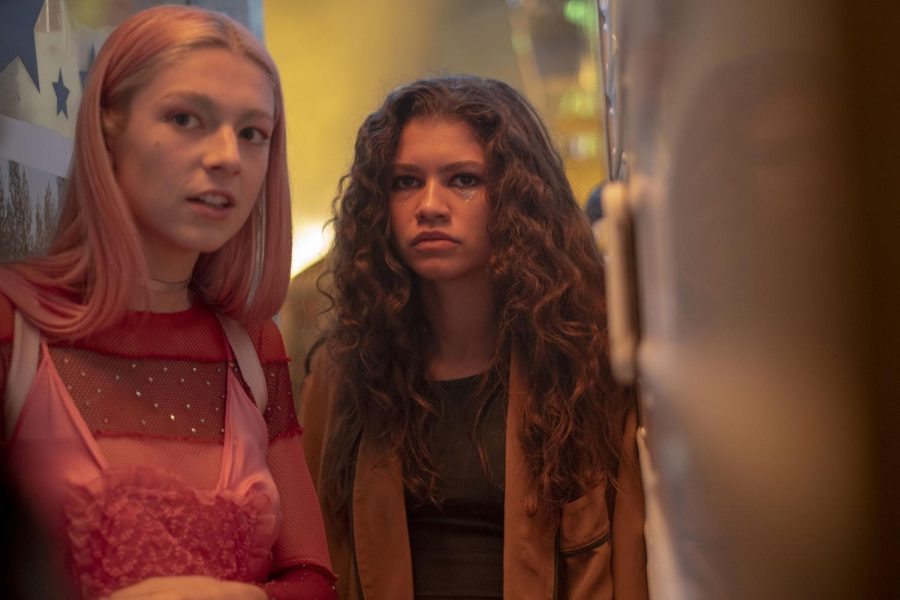The problems with ‘Euphoria,’ the newest breakout teen series
“Euphoria”, an HBO original TV series written by Sam Levinson, has taken the internet world by storm. Featuring Primetime Emmy Actress Zendaya, first-time breakout star Angus Cloud, and other big-name actresses like Sydney Sweeney and Alexa Demie, the show centers around a group of high-school age students as they tackle drug abuse, familial dysfunction, and abusive relationships in their transition to adulthood. It’s intended to shed light on the treacherous and injurious situations teens so often throw themselves into, and point out the pitfalls that such erratic behavior can lead towards.
While I truly applaud this show for its novel intentions and dedication to highlighting modern issues plaguing the teenage generation, it seems to take everything to the extreme. So much so, in fact, that the trauma it seeks to resolve becomes aestheticized. Characters repeatedly endanger themselves and others, yet somehow continue to avoid major catastrophe or even parental intervention. They dance through traumatic situations, such as troublesome drug run-ins and toxic relationships, to a theatrical soundtrack and emerge flawlessly groomed, episode after episode. While it may have been intended to serve as a warning, “Euphoria” often feels more like an instructional tutorial or a road map, all the while sensationalizing its subject matter and neglecting to portray the destructive effects of its characters’ actions.
In some ways, “Euphoria”, a show praised by critics for its original concepts and storyline, is following in the steps of many that came before it. Nicholas Ray’s landmark film Rebel Without a Cause (1955) was banned in New Zealand for fear that it would insight teenage rebellion and delinquency. Film critic Roger Ebert described Larry Clark’s 1995 coming-of-age film Kids as “the kind of movie that needs to be talked about afterward. It doesn’t tell us what it means.” Similarly, “Euphoria” seems to have no thesis beyond its evocative documentation.
Additionally, for a series that should be featuring teenagers as they deal with typical high school problems, the show’s cast seems to tell otherwise. Made up almost entirely of former or current models all over the age of 21, the entire main cast is stunningly beautiful, with day-to-day attire consisting mainly of bejeweled dresses, sequined makeup, and glitter. Characters remain stunning and immaculate even through the most traumatizing experiences. In fact, the aesthetics of the show have even influenced prominent runway shows, such as New York Fashion Week. W Magazine even dubbed the phenomenon the “Euphoria Effect”. Obviously, this fashion-crazed setting portrays all but the normal high school life, where many struggle to even get out of bed, feeding further into the show’s failure to accurately portray teenage life.
At its worst, “Euphoria” romanticizes destructive teenage behavior and delinquency. It is a patchwork of all the risky behaviors teens are pressured by society into partaking in, packaged neatly and tied up with a sparkly bow. It’s a series that has lost sight of its original intentions, and as such, becomes its own biggest hypocrite.


